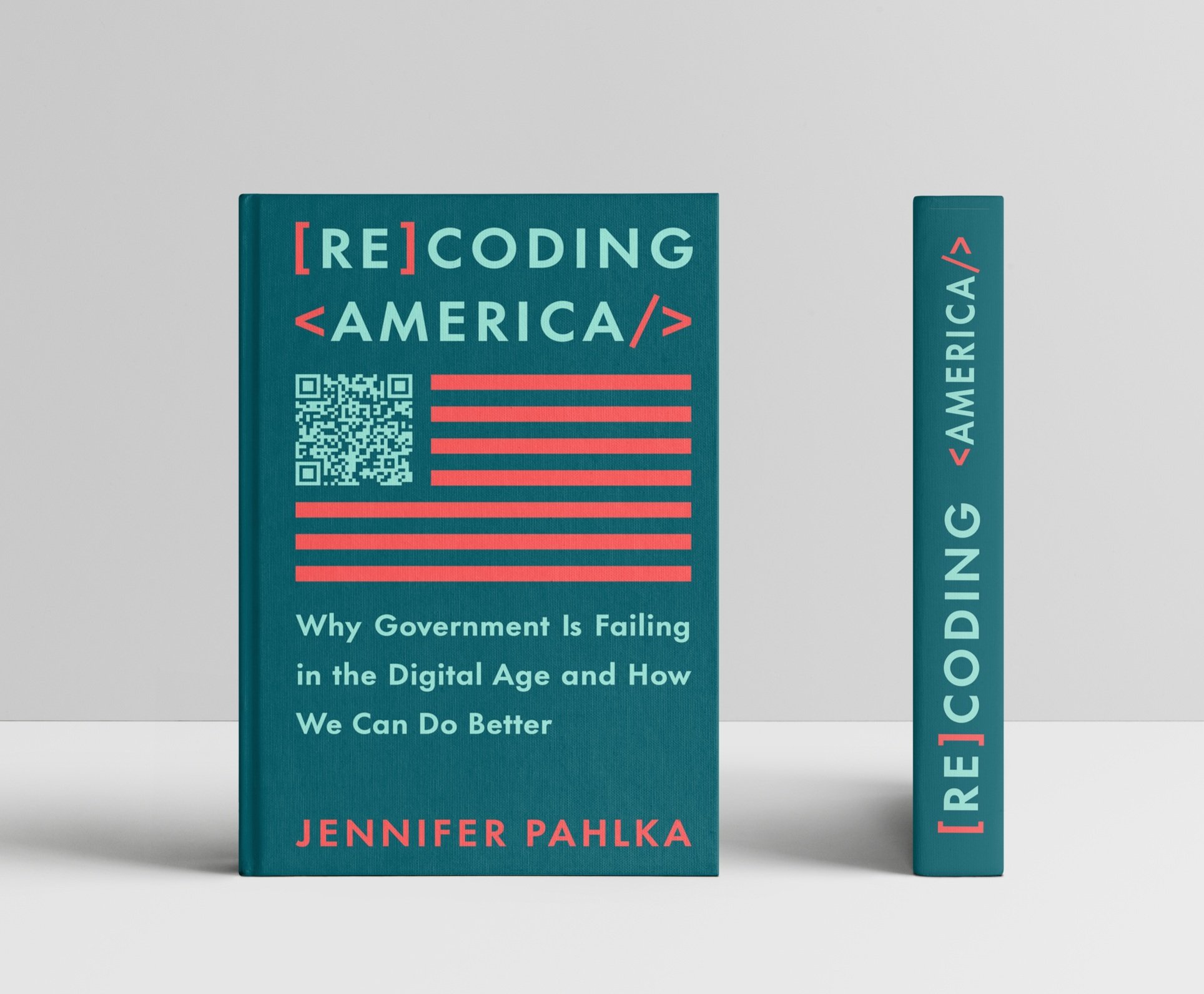Core Concepts >
Just when we most need our government to work—to decarbonize our economy, to help the vulnerable through a pandemic, to defend ourselves against global threats—it is faltering. Government at all levels has limped into the digital age, offering online services that can feel even more cumbersome than the paperwork that preceded them and widening the gap between the policy outcomes we intend and what we get.
But it’s not more money or more tech we need. Government is hamstrung by a rigid, Industrial-era culture, in which elites dictate policy from on high, disconnected from and too often disdainful of the details of implementation. Jennifer Pahlka shows why we must stop trying to move the government we have today onto new technology and instead consider what it would mean to truly recode American government.
The future of our society—and even our planet—depends on our ability to recode the American government." —Charles Duhigg
Paperwork favors the powerful
The wealthy hire lawyers and accountants to game their taxes while the poor fail to claim much-needed credits. Communities that need federal grant dollars the most are the least likely to receive them. Programs designed to pay more for better quality care end up measuring how well providers complete administrative tasks. The more burdensome the paperwork, the less equitable the outcome.
Data is a compass, not a grade
Data can be a useful tool for adjusting course, if public servants not only have access to data and the ability to understand it but also have the power to decide what to do based on it. If the compass says you’ve drifted off course, no one summons the inspector general or calls for a hearing. You just turn the wheel. But if data usually shows up as an after the fact evaluation or grade, public servants will see it as a stick they are to be beaten with, which does little to enable change.
Culture eats policy
Many a well-intentioned policy has failed to achieve its goals because the people who apply it are stuck in a “better safe than sorry” mindset that leads to ever-more rigid and maximalist interpretations. When rules rarely have their intended effect, more rules are not necessarily helpful.
The waterfall is a pledge not to learn
Waterfall software development may result in poor government services, but when insights, agency, and power flow down a hierarchy, but rarely bubble back up, you’re caught in a waterfall culture that goes far beyond tech. As Clay Shirky says, “the waterfall methodology amounts to a pledge by all parties not to learn anything while doing the actual work.”
No more concrete boats
Doing what you’re told even if you know it won’t work is not leadership. “If they ask us to build a concrete boat, we’ll build a concrete boat,” one government technology leader told me. “Because that way, when it goes wrong, it’s not our fault.”
Rethink input
Government has relied heavily on “notice and comment” to invite public input. But the people we need to hear from most don’t participate. Practices like user research and product management flip the script, actively working to understand the needs of those most impacted and those most critical to the success of a policy.
Policy vomit
Service design is a craft that can make it easier to interact with government. Policy vomit is what happens when services are not designed, but reflect the policy requirements dumped, undigested, into the forms and communications that the public or others must use.
Who is at the table?
When policy decisions are made – even when laws are being drafted – who is invited to participate? Including implementors can help ensure that the law or policy will be written to be implementable.
Reinvent oversight
Today, most oversight of government programs inadvertently increases the risk aversion of the bureaucracy. Administrative agencies focus on fidelity to process, disincentivizing prioritizing outcomes. The legislative branch spends their attention on failures, missing the chance to elevate the models that work. Rehauling both could shift dynamics significantly.
It has to make sense to a person
Rules matter. But we can find ourselves fighting over ever more fussy interpretations of rules while losing sight of the intent of the law, policy, or regulation. When it’s so complicated that it doesn’t make sense to a person, it will be captured by special interests. Public servants should interpret rules in ways that are easy to understand and serve the intent of the law.
Delivery in dialogue with policy
Traditionally, policy has dictated what delivery teams should do. But implementation is when we learn the most about what the policy should have said in the first place, and how it might need to evolve to achieve its goals. Dialogue between policy and delivery will get better outcomes than one-way directives.












